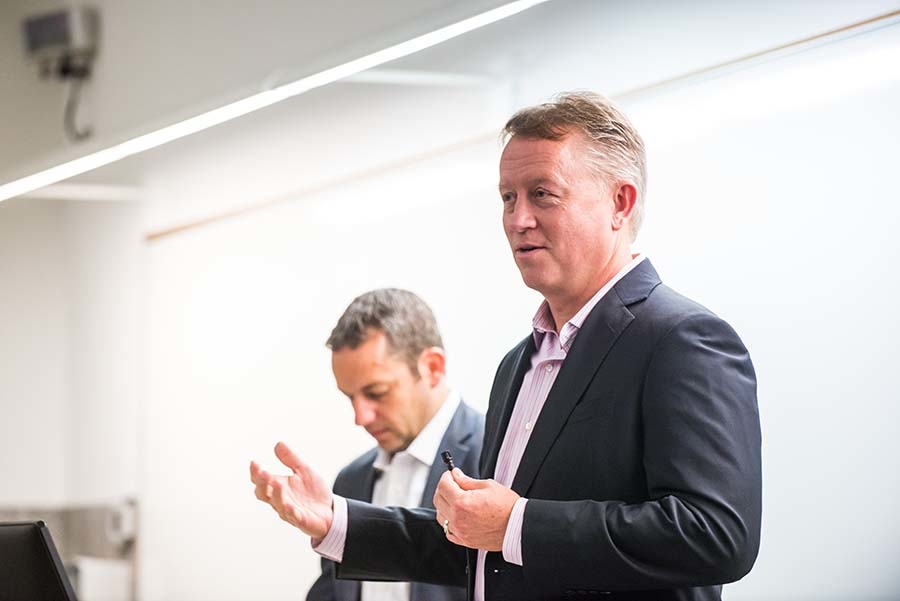
Accelerating Their Analytics Education
Thursday, September 7, 2017
Her first semester of graduate school was just a few weeks old, and Rachel Wolfe was trying to absorb the challenge in front of her. She and her Carlson School Master of Science in Business Analytics classmates were to sift through a trove of auto insurance data to identify problems and present recommendations to judges from one of the world’s largest professional services firms.
No pressure.
“They were like, ‘Here, solve this. There’s a problem—find it.’ It was just kind of a shock at first,” Wolfe said of the four-week case competition in partnership with PwC that culminated August 25.
“I think the toughest part was kind of just getting started. This was our first semester, so most of us don’t have a lot of experience in the analytics field.”
Wolfe and her five teammates—Abhijit Kurve, Mukul Gupta, Ramnath Kamakoti, Yi-Fan Wang, and Elaine Qiu—found their footing, dug into the data to uncover solutions to improve profitability, and crafted a presentation that was compelling enough to win top honors in the competition.
“We gave them a pretty difficult challenge, and I thought they all really rose to that challenge,” said Scott Busse, a partner with PwC's U.S. Data & Analytics Insurance Advisory Practice and one of the competition’s judges.
The MSBA Program added a case competition to its summer term—the first of three semesters in the one-year program—last year to “expose (students) to a problem-solving mindset very early in the curriculum,” said Professor Ravi Bapna. The case is part of Bapna’s Analytics for Competitive Advantage class, an overview course that lays the groundwork for the rest of the MSBA curriculum by establishing a foundation of knowledge and skills in analytics and machine learning.
“I think it really accelerates their learning curve and it sets us up nicely for more experiential work in the fall and in the spring,” said Bapna, the Curtis L. Carlson Chair in Business Analytics and Information Systems and academic director of the Carlson Analytics Lab, the MSBA Program’s 14-week client project that runs during the spring semester.
“This is, overall, a big part of our curriculum, having experiential learning embedded all through. This is not just a capstone project; it’s right from the summer semester.”
The students learned some early, fundamental lessons, including the importance of team dynamics. “Finding everybody’s strengths is definitely really crucial to a successful project,” said Wolfe.
And, in feedback from competition judges Busse and PwC Managing Director Doug Bond, one core message emerged: combining analysis with clear messaging is paramount.
Some teams produced advanced work but struggled to tell the story; others created a compelling narrative but lacked the analytical underpinning to fully support it.
“If you have a good story, but you don’t have the analysis to back it up, you’re not credible. And if you have the analysis, but you don’t have the story, you’re not going to be able to put that into action," said Busse, "and without putting the analysis into action … you’re not really going to be able to impact the business in any positive way."
Bond, whose group often presents to C-suite audiences, reminded students to keep their audience in mind.
“Understand what they’re looking for,” he advised. “What are the type of things they want to hear? And how can you take your analysis, the statistics, the models that you’ve generated and communicate it in a way that your audience understands?
“If you can’t do that, nothing else matters.”
